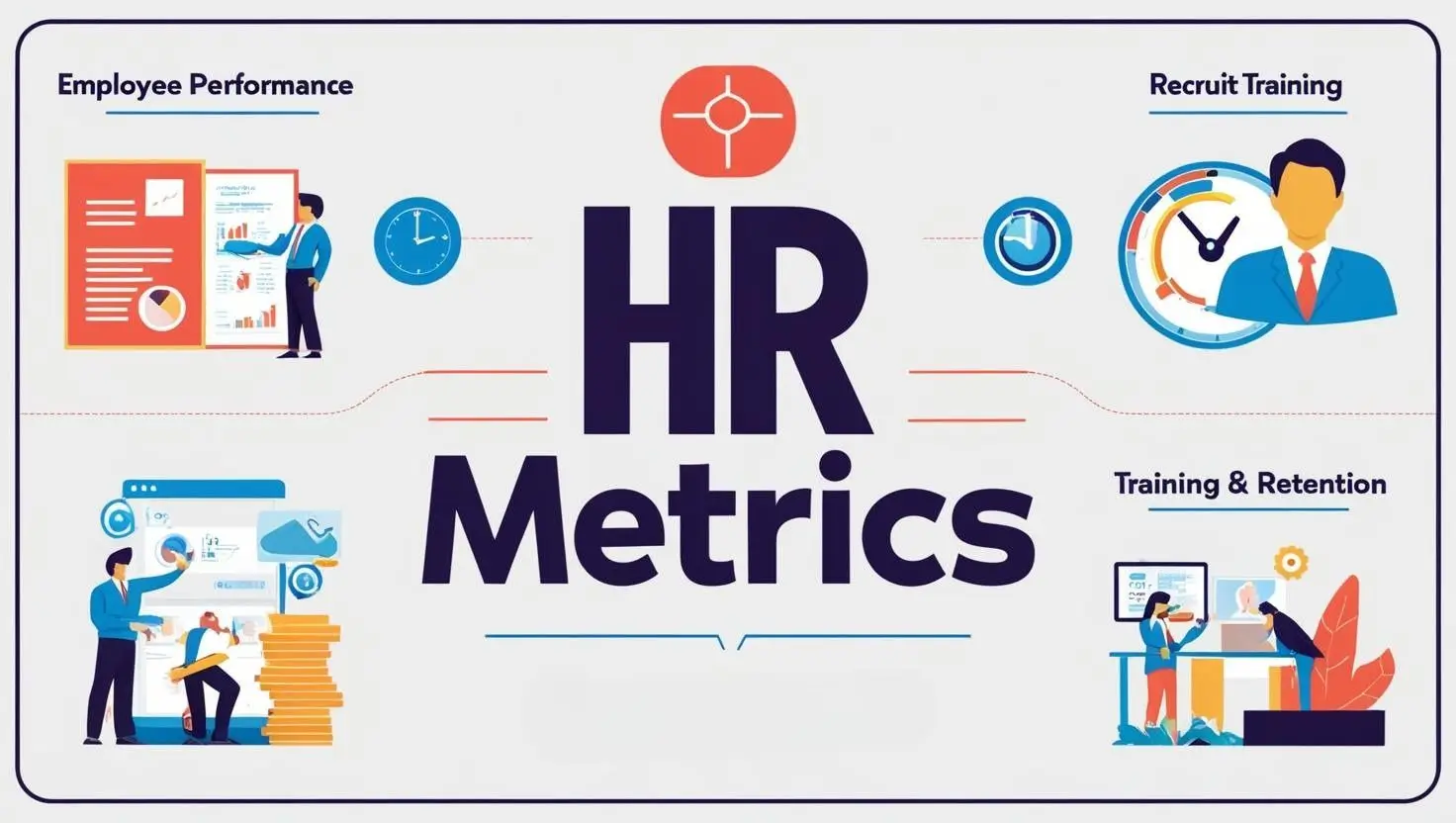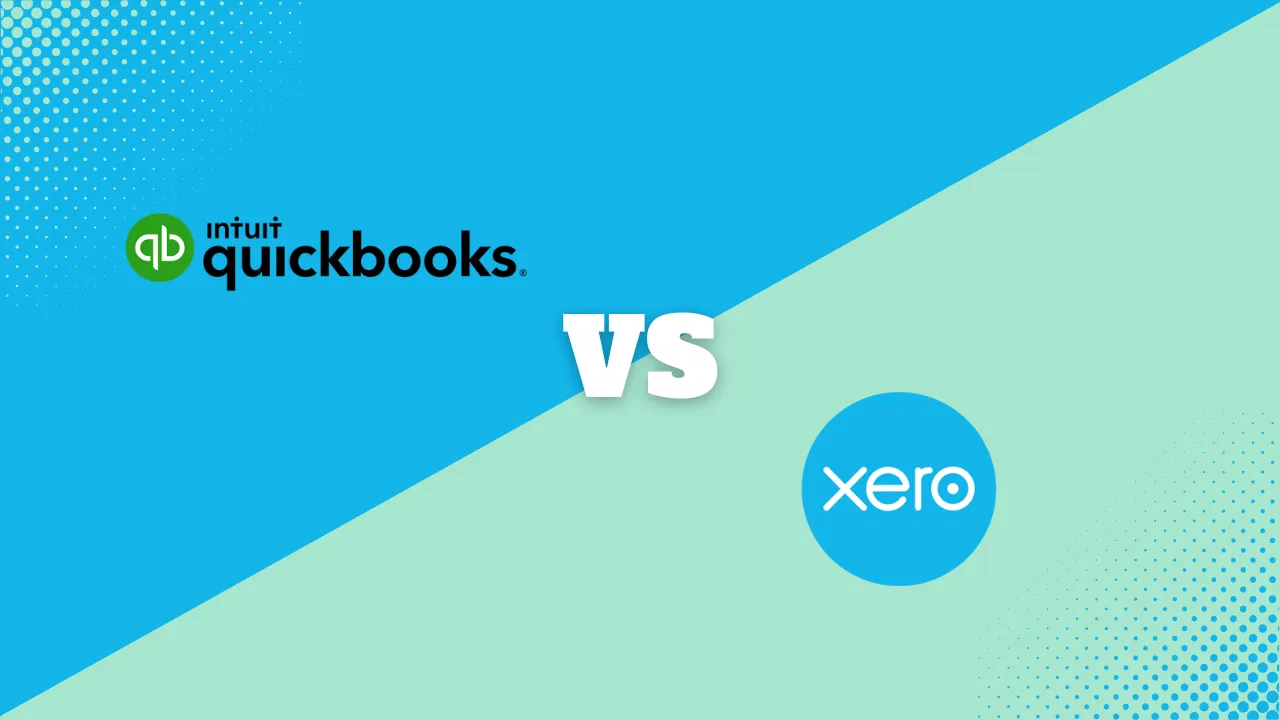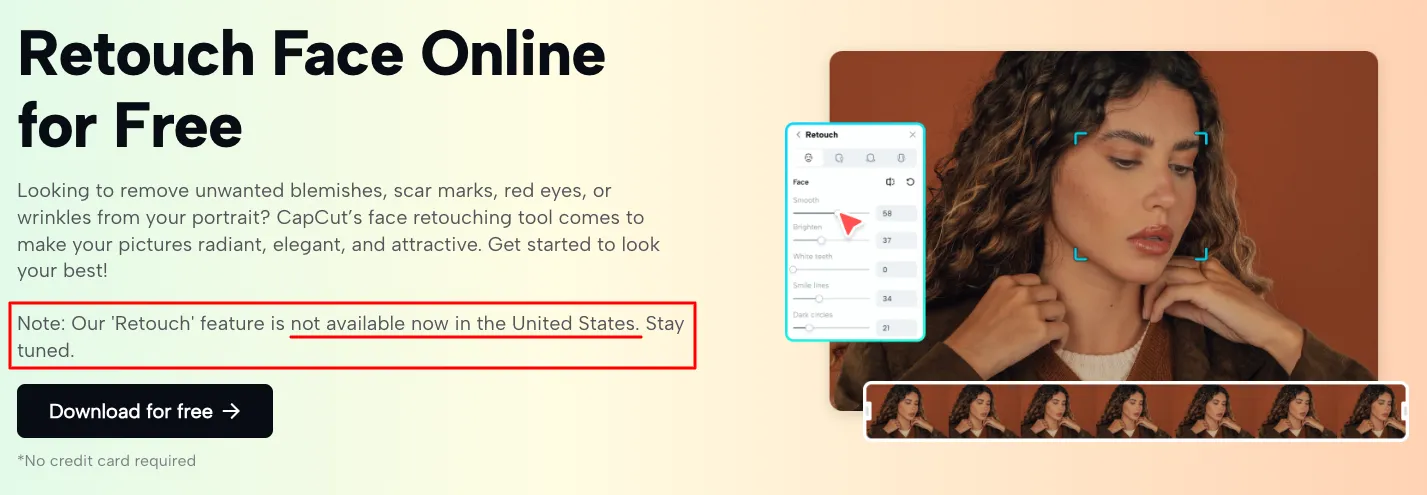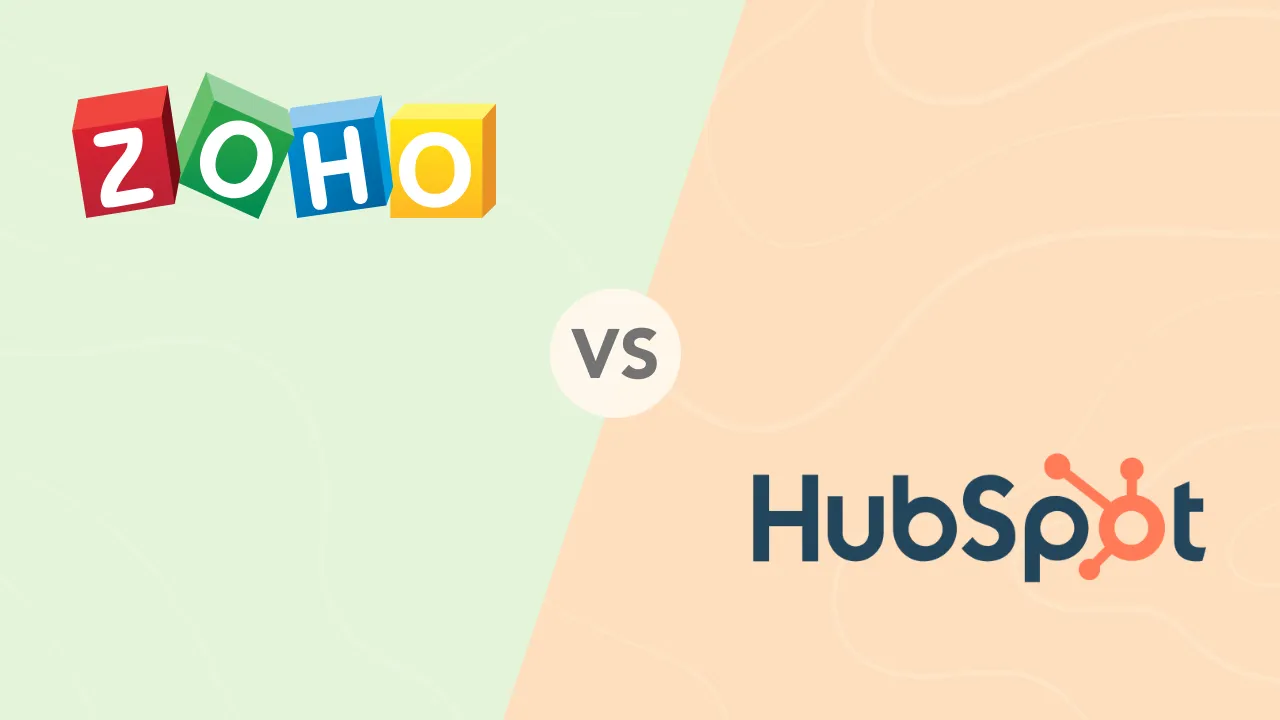Gusto vs Paychex (2025): The Complete HR Software Comparison for SMB Owners

For small and mid-sized businesses, payroll and HR management often feel like an uphill battle. Owners and HR managers face constant pain points:
-
Payroll deadlines that eat into every pay cycle.
-
The fear of tax penalties or compliance violations.
-
Juggling multiple spreadsheets and systems to track time off, onboarding, or benefits.
-
Employees frustrated by delayed payments, poor visibility into benefits, or outdated HR tools.
These aren’t small issues—they directly impact morale, retention, and profitability. Labor represents up to 70% of total expenses for many SMBs, which means inefficient HR systems cost more than just time—they cut into your bottom line.
That’s why businesses turn to cloud HR software. Two of the most widely adopted solutions are Gusto and Paychex. Both help companies automate payroll, simplify compliance, and support employees. But their approaches are different, and choosing the right one depends on where your business is today and where you want it to go.

Simple
Pros
- Accurate tax calculations & free tax filings
- Easy integrations
- Easy to use interface with simple time tracking
Cons
- No mobile app
- No annual plan, lifetime plan or money back guarantee

Partner Plus
Pros
- Access to a team of experts
- Wide range of HR solutions
- All-in-one platform
Cons
- Only custom pricing for two of the account types
Key Takeaways
-
Gusto is built for small and mid-sized businesses that want modern, easy-to-use payroll and HR software with transparent pricing models and employee-friendly features.
-
Paychex is designed for scalability, offering compliance expertise, HR outsourcing, and dedicated support, making it a strong fit for growing or regulated businesses.
-
Gusto leads in simplicity, automation, and employee experience, while Paychex excels in compliance, scalability, and 24/7 support.
-
Your decision comes down to business size, compliance needs, and how much HR support you want to keep in-house versus outsource.
Market Overview & Adoption
Gusto: The SMB Hero
-
Founded: 2011 (as ZenPayroll).
-
Clients: Over 300,000 small businesses in the U.S.
-
Adoption data: Around 3.3% of U.S. small businesses use Gusto, covering about 14% of small-business employees. Most clients are very small, with 666 of its customers employing fewer than 10 people.
-
Strength: Simplicity, automation, and employee-friendly tools.
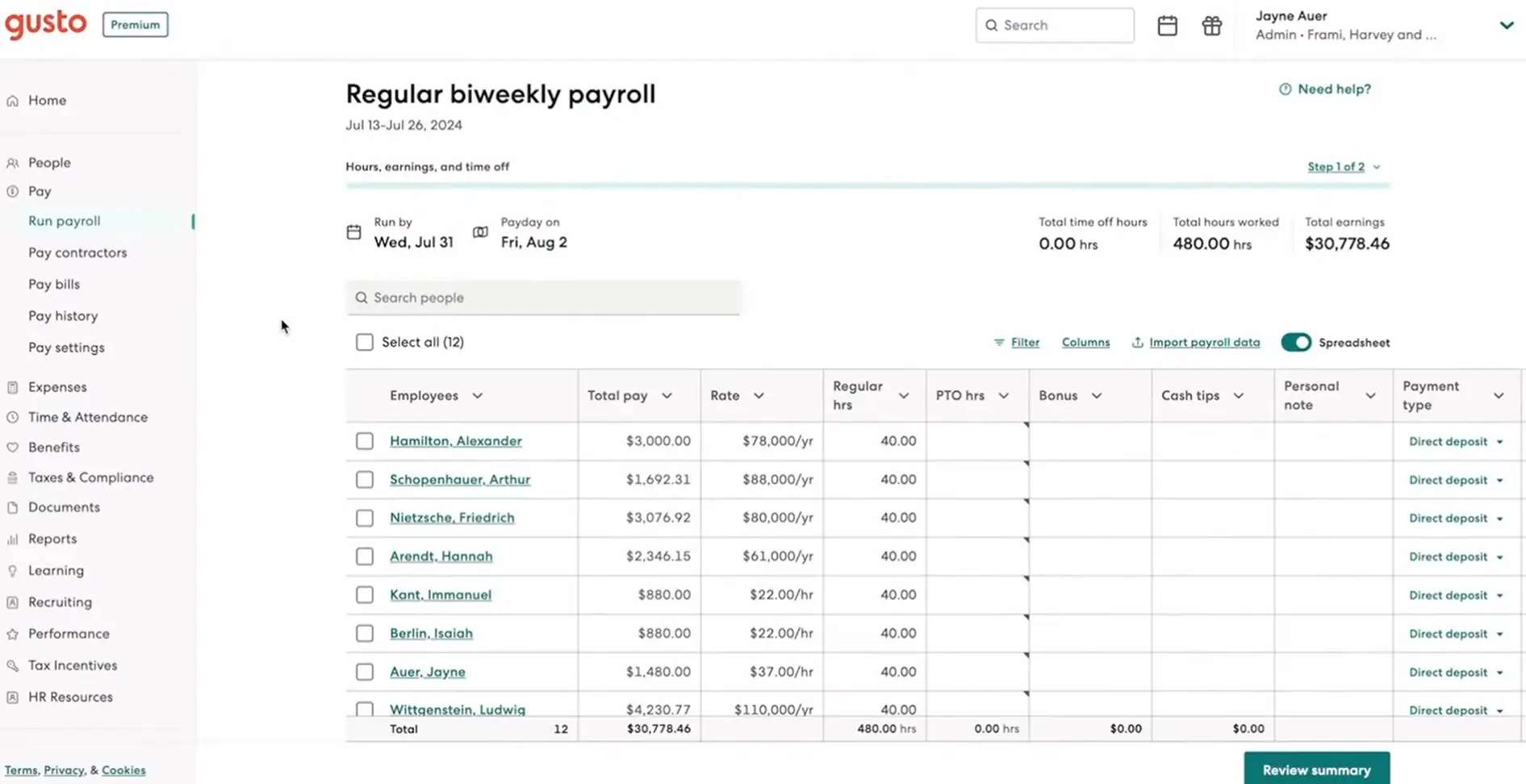
Paychex: The Compliance Guardian
-
Founded: 1971.
-
Clients: More than 730,000 worldwide.
-
Market share: Roughly 3.3% of the payroll and benefits software category, making it one of the top players alongside ADP.
-
Strength: Compliance depth, HR outsourcing, and scalable services that fit mid-sized and larger SMBs.
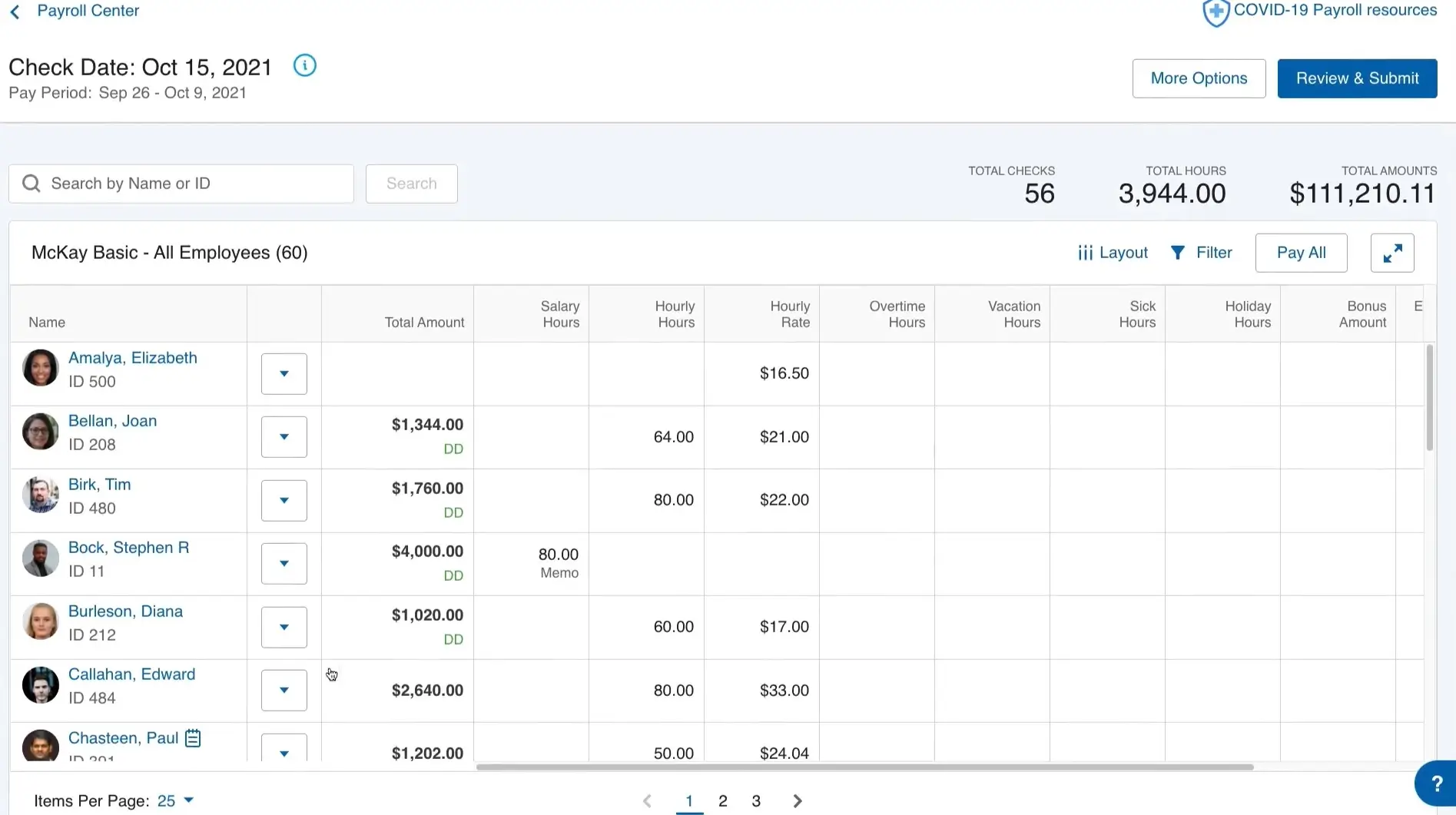
Takeaway: Gusto dominates with very small and startup clients, while Paychex commands the mid-market.
Pricing Models: Transparency vs Flexibility
-
Gusto: Uses clear tiered pricing models with a base subscription and per-employee fee. Pricing is published and predictable, ideal for SMBs who want budgeting clarity.
-
Paychex: Uses a custom quote model. Costs vary based on employee count, services (payroll only vs full HR suite), and optional add-ons like PEO.
👉 Evergreen advice: If you value cost transparency, Gusto fits better. If you want customization and advanced HR outsourcing, Paychex adjusts to your scale.
Payroll Capabilities
-
Gusto:
-
Automates federal, state, and local payroll tax filings.
-
Pays both W-2 employees and 1099 contractors in one system.
-
Integrates with popular accounting platforms like QuickBooks and Xero.
-
Built for speed and accuracy, perfect for small HR teams or owner-managers.
-
-
Paychex:
-
Handles complex needs like garnishments, wage reporting, and multi-state compliance.
-
Offers international payroll options through partnerships.
-
Provides stronger controls for businesses with large or distributed workforces.
-
Takeaway: Gusto is best for straightforward payroll and contractor payments. Paychex is stronger for multi-state, complex, or compliance-sensitive payroll.
HR & Employee Management
-
Gusto: Digital onboarding with e-signatures, PTO tracking, performance reviews, employee surveys, and Gusto Wallet for financial wellness. Designed to improve employee culture and engagement.
-
Paychex: Advanced HR features including compliance alerts, handbook builders, Learning Management Systems (LMS), and access to HR advisors. Designed to reduce risk and support compliance-first businesses.
Benefits Administration
-
Gusto: Offers health, dental, vision, retirement (401k), HSA/FSA, and commuter benefits via broker partnerships. Helps small businesses compete with larger employers.
-
Paychex: Provides a broader benefits marketplace with COBRA management and multiple retirement plan types, more customizable for larger organizations.
Compliance & Risk Management
-
Gusto: Higher-tier plans include compliance alerts and HR advisors to help small teams stay aligned with labor laws.
-
Paychex: Known for compliance leadership, offering 24/7 monitoring, dedicated HR specialists, and liability sharing through its PEO model.
Takeaway: For SMBs, Gusto provides a solid safety net. For regulated industries (healthcare, manufacturing, finance), Paychex is the safer long-term partner.
Related Articles
User Experience
-
Gusto: Consistently rated highly for ease of use (9.5/10 on user review sites). Designed for non-HR professionals to run payroll quickly and confidently.
-
Paychex: Feature-rich but less intuitive. Strong for businesses with HR staff or those needing deep reporting and controls.
Customer Support
-
Gusto: Offers support during business hours via phone, email, and chat. Higher-tier clients receive priority assistance.
-
Paychex: Provides 24/7 support, often with a dedicated payroll or HR specialist assigned to accounts.
Gusto vs. Paychex: Features Comparison
Both Payroll services provide similar services to customers. Both Gusto and Paychex provide standard payroll services like direct deposit payroll, tax filing, and calculation; they even have an employee portal for you and your team to track your pay stubs, taxes, hours worked, and access tax documents. They also offer human resources management, such as hiring and recruiting talents and employee benefits. They both integrate well with third-party software to provide some services.
The table below gives some of the differences between Gusto and Paychex
| Feature | Gusto | Paychex |
| Payroll |
Direct deposit only for employees and contractors |
Direct deposit or in-house printed checks available for employees and contractors |
| Pricing |
One-time fee on most Features |
Add-ons fee required to enjoy full benefits |
|
Benefits enjoyed by the employee |
Health, wellness, transportation, housing, retirement, and custom benefits are available at no additional cost. |
At a significant additional cost, PEO-level benefits are available |
|
Employee Portal |
Employees have lifetime access to see pay stubs hours worked and lots more |
Employees can simply view pay stubs and tax documents. |
| Third parties brokers |
Gusto partners with brokers to offer employees benefits |
At the PEO level, a full comprehensive range of HR is provided. |
|
Years of experience |
About 10 years |
Over 50 years |
|
Areas of Coverage |
Operational in all 50 states of the United States (Health insurance is not available in some States) |
Operation in 6 Countries in Europe (The United States inclusive) |
Case Studies
Case Study 1: Startup With Contractors
A 15-employee marketing agency struggled with paying contractors on time and handling tax paperwork. Switching to Gusto automated both employee and contractor payroll. Errors dropped to zero, and the HR manager saved 10 hours per month.
👉 Lesson: Gusto is perfect for startups or SMBs juggling employees and contractors.
Case Study 2: Multi-State Manufacturer
A 200-person manufacturer operating across three states faced wage law and OSHA compliance risks. By adopting Paychex PEO, they gained HR advisors, compliance monitoring, and better benefits. Turnover dropped 15% within a year.
👉 Lesson: Paychex is a strong partner for compliance-heavy and multi-state businesses.
Case Study 3: Professional Services Firm
A 40-person consulting company with remote staff needed stronger onboarding and PTO management. With Gusto, they streamlined digital onboarding, tracked PTO, and launched engagement surveys. Managers reported 25% less HR admin time, and employee satisfaction improved.
👉 Lesson: Gusto is excellent for service firms focused on employee culture and efficiency.
ROI & Business Impact
-
Gusto ROI: Saves SMBs hours weekly, reduces errors, and improves employee satisfaction with modern HR tools.
-
Paychex ROI: Lowers compliance penalties, reduces reliance on in-house HR hires, and scales HR infrastructure alongside growth.
Decision Framework for SMB Owners
| Business Context | Best Fit | Why |
| Startup or contractor-heavy workforce | Gusto | Simple, affordable, and contractor-friendly |
| Small business (<50 employees, single state) | Gusto | Easy setup, transparent model, intuitive |
| Mid-sized or multi-state business | Paychex | Advanced payroll and compliance support |
| Compliance-heavy industries | Paychex | Risk-sharing, HR advisors, and monitoring |
| Culture and employee engagement focus | Gusto | Modern onboarding, surveys, and self-service |
| Scaling beyond 200 employees | Paychex | Enterprise-level outsourcing and scalability |
Supporting Data to Guide Your Decision
-
The payroll software market is projected to grow from 8.4 billion in 2024 to over 11 billion by 2029.
-
Gusto serves 300,000+ small businesses, covering around 14% of SMB employees in the U.S.
-
Paychex supports more than 730,000 clients globally and holds about 3.3% market share in payroll/benefits software.
-
Around 12% of companies outsource payroll, and the trend is rising as compliance requirements grow.
Conclusion: Gusto vs Paychex — The Right Fit for Your Business
Both Gusto and Paychex solve the payroll and HR pain points that hold SMBs back, but they shine in different ways.
-
Choose Gusto if you are a small or mid-sized business that values simplicity, transparent models, and employee-friendly HR tools.
-
Choose Paychex if you are scaling, face compliance risks, or want HR outsourcing to reduce your in-house workload.
👉 To explore these platforms in detail and compare them against other HR solutions, SMB owners can find the right HR software to match their growth stage and goals.
Frequently Asked Questions
1. Which platform has a simpler, more intuitive interface?
-
Gusto is widely praised for its modern, beginner-friendly design and intuitive workflows—many SMB owners find it “easier to use than Paychex”
-
Paychex offers more depth and customization but comes with a steeper learning curve, reflecting its enterprise-level heritage
2. Does Gusto support contractor payments alongside employees?
-
Yes. Gusto allows businesses to manage W-2 employees and 1099 contractors in one system, including automated tax filings like 1099s
-
Paychex also supports payments for contractors and employees, though some features may be part of add-ons or require higher-tier plans
3. Can I handle payroll in multiple states without upgrading?
-
On Gusto, multi-state payroll requires upgrading to a higher plan that includes that feature by default
-
Paychex offers stronger multi-state payroll capabilities as part of its standard offerings, making it easier for businesses with distributed teams
4. Which software includes built-in time tracking and attendance?
-
Gusto includes integrated time tracking (e.g., clock-in, PTO, geofencing) in its mid to higher-tier plans, with no extra charge for core features
-
Paychex offers time and attendance tools, but they often come as paid add-ons depending on the plan
5. Which platform offers benefits administration without hidden costs?
-
Gusto includes health, dental, vision, retirement plans, and flexible spending accounts in its core packages, managed via broker partnerships
-
Paychex delivers broader benefits administration through its PEO offering, with customizable benefits options—but this often comes with additional fees
6. What are the customer support differences between the two?
-
Gusto offers email, chat, and phone support during business hours, with premium tiers receiving priority assistance
-
Paychex provides 24/7 support and often assigns a dedicated payroll specialist to clients, which is a significant benefit for businesses that need continuous HR guidance
7. Which software offers better mobile access and management?
-
Gusto’s mobile experience focuses on employee access through Gusto Wallet, but administrative features are limited on mobile
-
Paychex offers robust mobile access for both employers and employees, making admin tasks and payroll management easier on the go
8. Is there a way to switch from Paychex to Gusto quickly?
-
Gusto claims that businesses can switch from Paychex and simplify payroll setup in less than one week, streamlining onboarding into their system



